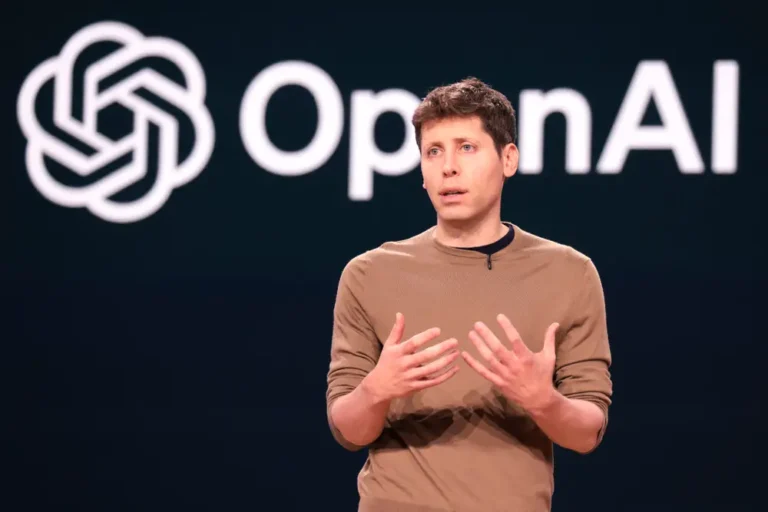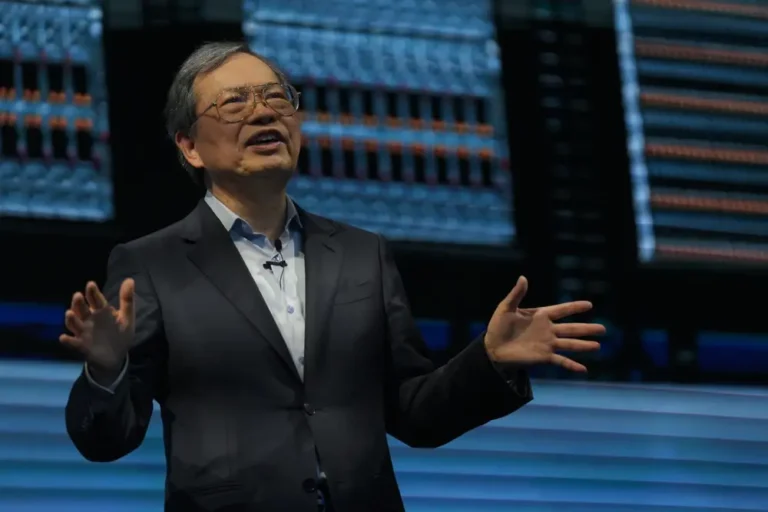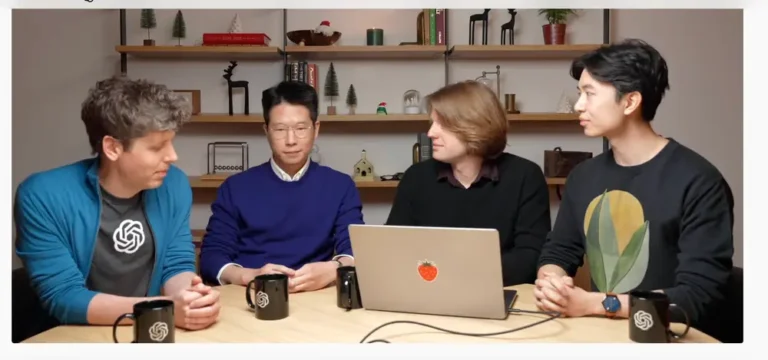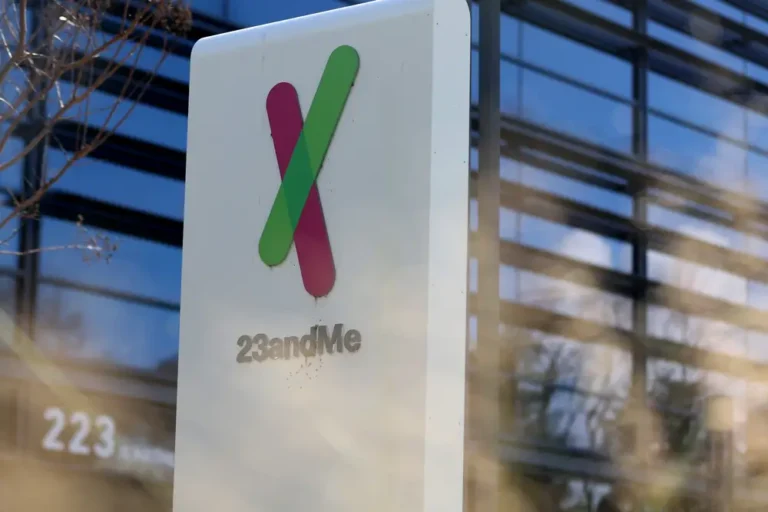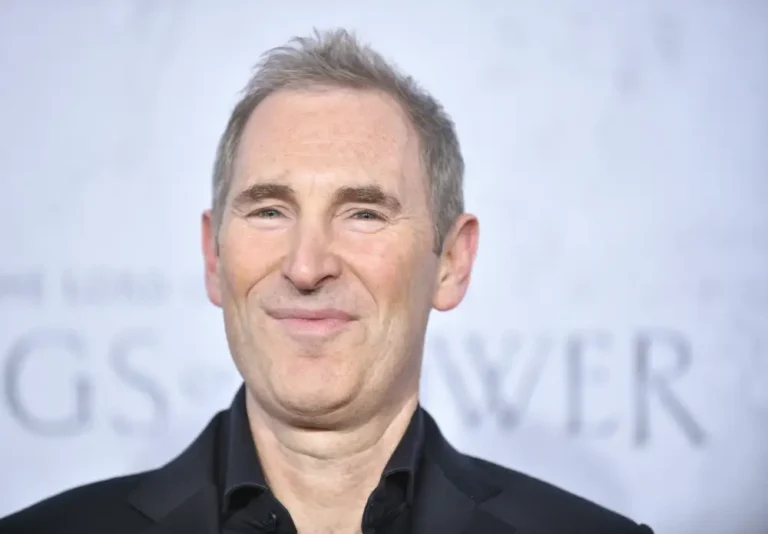Photos show how your Facebook feed has changed over the last 20 years
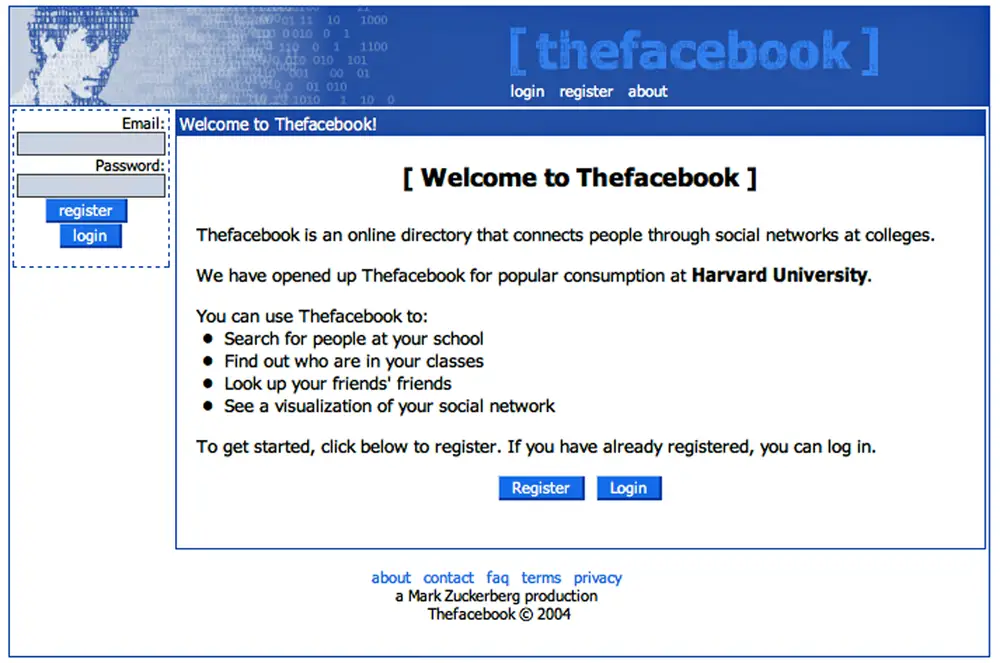
Facebook launched in 2004, as seen here, but didn’t get a news feed until two years later.
Mark Zuckerberg wants to get back to the Facebook of yesteryear. Do you remember what that was like?
The company on Thursday announced a new friends-only tab, which the Meta CEO called “phase one of bringing back OG Facebook.”
The social media site’s feed has undergone a number of big changes in the two decades since it launched in 2004.
In case you’ve forgotten, here’s a trip down the Facebook feed’s memory lane:
When Facebook launched in 2004, it looked like this
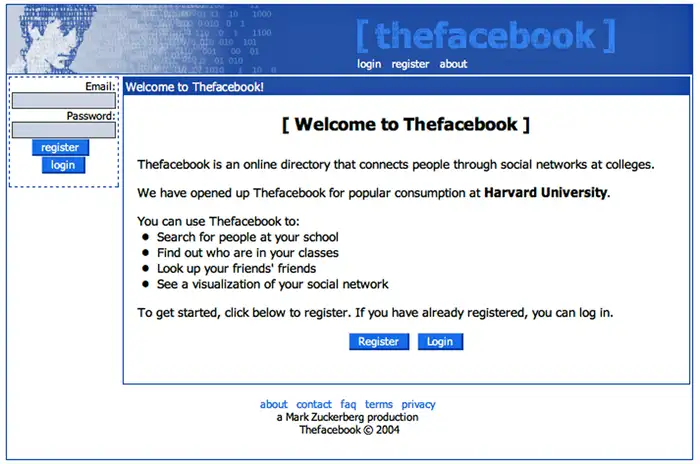
It was originally called Thefacebook.
The site was originally called Thefacebook and was limited to students at Harvard, where Zuckerberg was still an undergraduate when he launched it. He later dropped out of the university to focus on it full-time.
Facebook launched the news feed and mini-feed in 2006 — and users were outraged
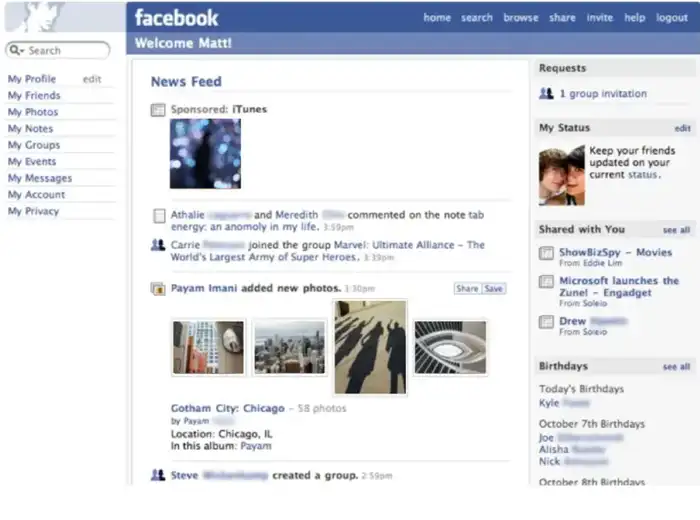
Facebook employees were surprised by many users’ negative reactions to the news feed.
Though Facebook employees expected it to be popular, many users actually hated it at first, and there was even talk of boycotting the site as a result.
So many people were incensed that Zuckerberg wrote a response.
“We think they are great products, but we know that many of you are not immediate fans, and have found them overwhelming and cluttered,” he wrote. “Other people are concerned that non-friends can see too much about them. We are listening to all your suggestions about how to improve the product; it’s brand new and still evolving.”
In 2009, the company introduced a real-time news feed
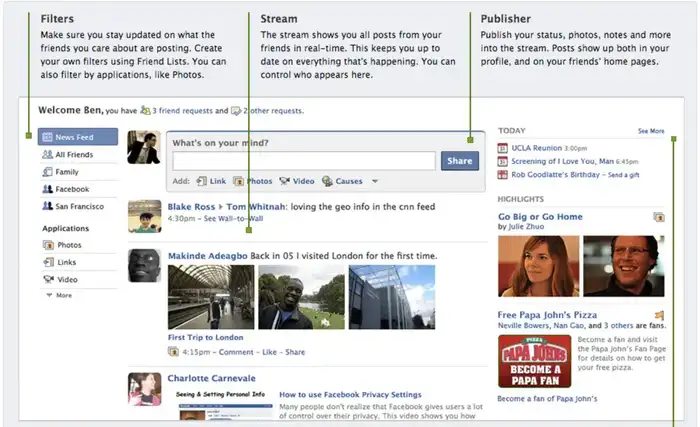
The real-time news feed was Facebook’s response to Twitter.
Facebook’s real-time news feed was their response to Twitter, which launched in 2006. Facebook’s news feed previously took a while to update, but this change meant you’d see things as they were posted.
The ticker came in 2011
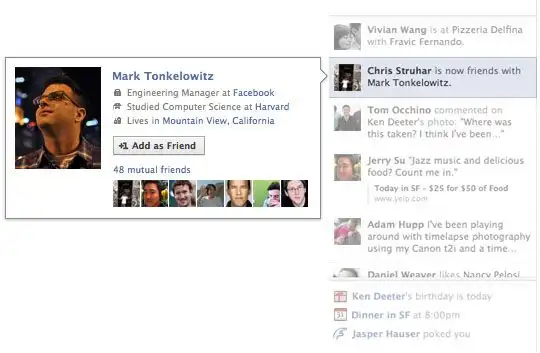
Facebook’s now-defunct ticker feature appeared as a vertical bar on the right side of your screen.
The ticker feature helped address the issue of the time lag by showing you instantaneous updates on your friends’ posts, likes, shares, comments, check-ins, and more.
It appeared as a bar on the right side of users’ screens. It was axed years later.
‘Sponsored stories’ ads started appearing in users’ news feeds in 2012.
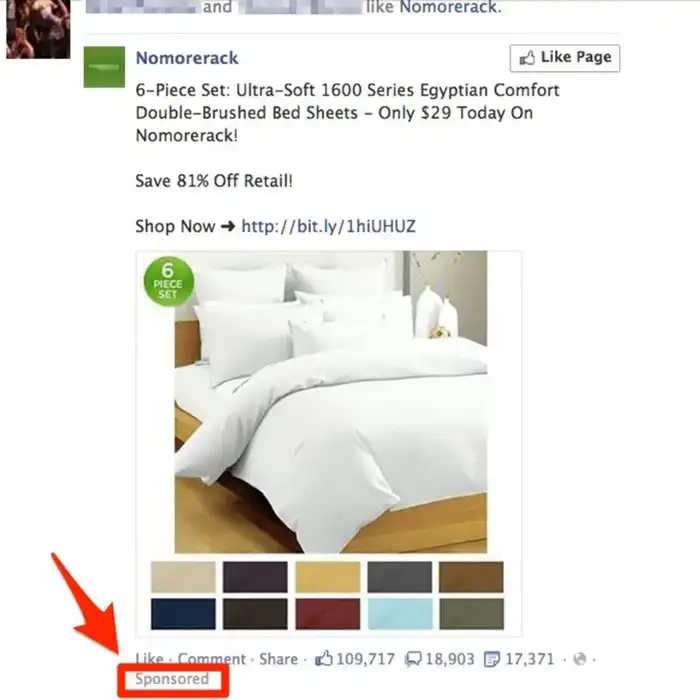
Advertising is a big part of Facebook’s business model.
These were different from regular display, or “Marketplace,” ads that appeared on Facebook.
The news feed got a big makeover in 2013 when Zuckerberg said he wanted to ‘give everyone the best personalized newspaper in the world’
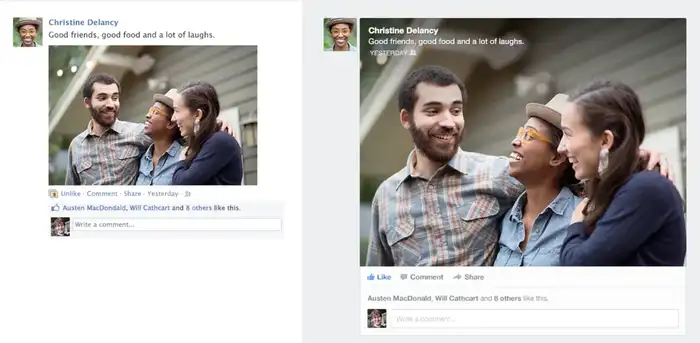
This before-and-after photo shows how much larger photos and videos became when Facebook made the change.
The most notable change was that multiple feeds became available, organized by topics like news, music, photos, videos, and events. Photos and videos also became bigger and appeared more frequently.
Facebook also focused on mobile consistency so your feed would look the same on your phone as on your desktop.
In 2016, the company said it was updating the news feed to show posts from friends and family higher up
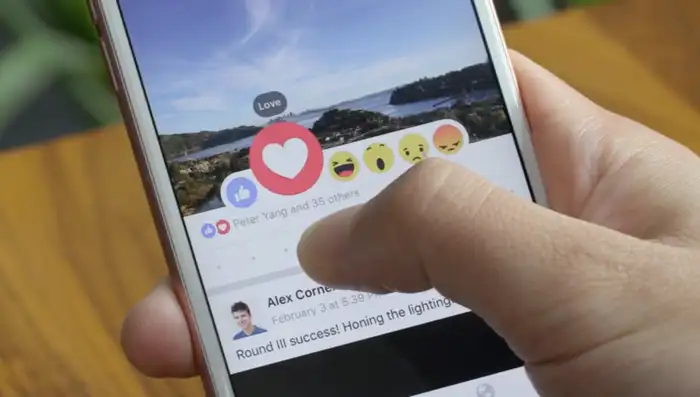
Facebook’s reactions include a like, love, laugh, shock, sad, and angry emoji.
That year, the company also introduced a slew of reactions besides just the like button. Initially, the algorithm just interpreted any reaction, whether positive or negative, to assume the user wanted to see more of that content in their feed.
But users still said they were seeing too many public posts, rather than posts from friends and family. Zuckerberg said addressing this would be a key focus area in 2018
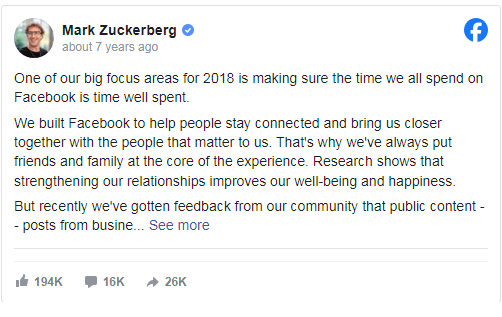
“Recently we’ve gotten feedback from our community that public content — posts from businesses, brands and media — is crowding out the personal moments that lead us to connect more with each other,” he wrote in a Facebook post. “Based on this, we’re making a major change to how we build Facebook. I’m changing the goal I give our product teams from focusing on helping you find relevant content to helping you have more meaningful social interactions.”
As a result, he said, users could “expect to see more from your friends, family and groups.”
In 2021, Facebook added a ‘feed filter bar’ that gave users three options on how to customize how their news feeds would look
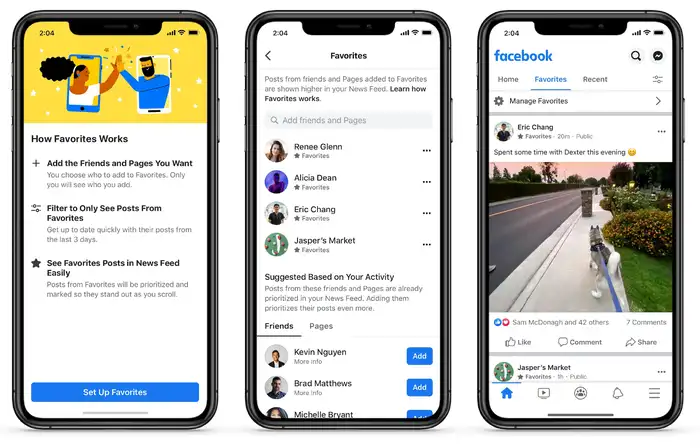
Favorites was one of three options for customizing your feed with the feed filter bar introduced in 2021.
The menu lets users choose between a feed sorted by algorithmic ranking, chronology with the newest posts first, and Favorites, where users could choose up to 30 friends and Pages to prioritize in their feeds.
In 2022, the company dropped ‘news’ from the product’s name to become just ‘feed’
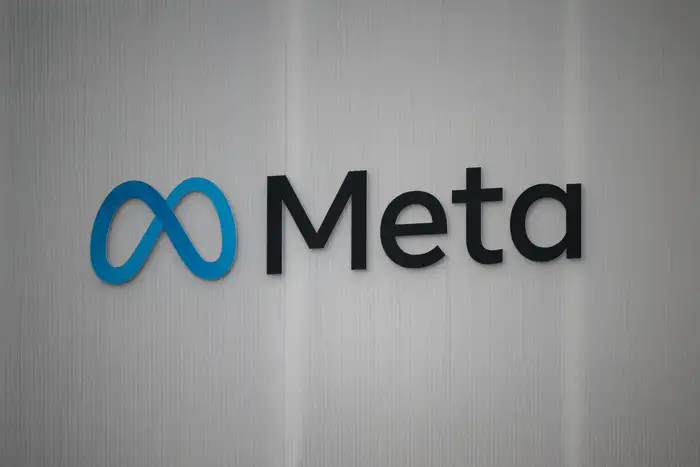
Facebook rebranded to Meta in 2021.
While there was no big aesthetic change, it represented a shift in how Facebook wanted users to view their feeds. The change was made to “better reflect the diverse content people see on their feeds,” a Facebook spokesperson said at the time.
The move came at a time when Facebook was trying to show users less political content in their feeds amid broader concerns about how the content its algorithm does and does not prioritize could sow polarization and the spread of misinformation.
This came a year after a much bigger name change: the company’s corporate name. Facebook rebranded as Meta in 2021.
The company’s latest change to users’ feeds brings us full circle
Speaking on “The Colin and Samir Show” podcast, Zuckerberg said the launch of the friends-only tab marked “phase one of bringing back OG Facebook.”
It’s a tab that shows your friends’ stories, reels, posts, birthdays, and friend requests, no recommended content in sight. It’s currently available in the US and Canada.
“Connecting with friends has been a part of Facebook since it launched,” Meta said in its announcement. “Over the years, Facebook evolved to meet changing needs and created best-in-class experiences across Groups, Video, Marketplace and more, but the magic of friends has fallen away.”

